Bath surgeon sacked after raising safety concerns
- Published
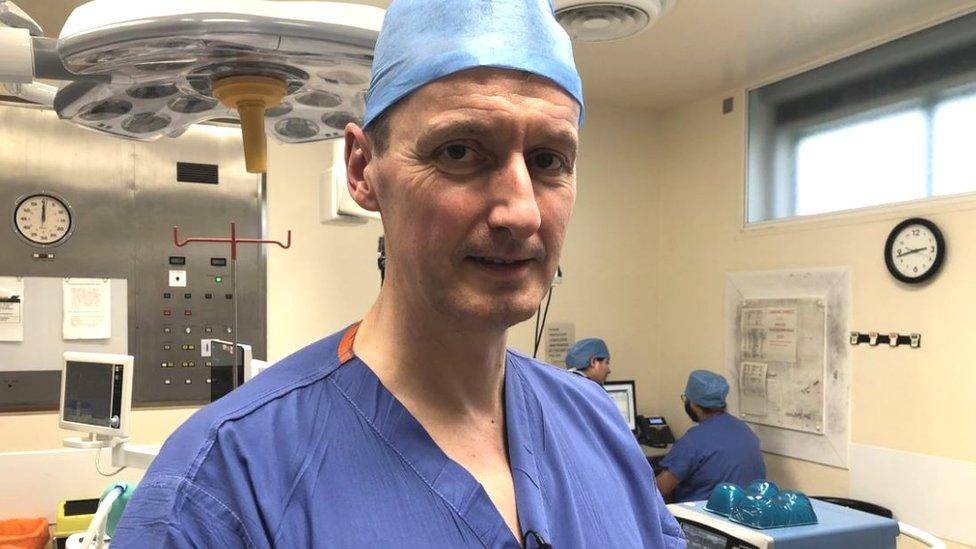
Serryth Colbert specialises in surgery on the head, face, neck and jaw
A senior surgeon has raised concerns about the way whistleblowers are dealt with, claiming he was sacked after speaking out.
Serryth Colbert told the BBC that following attempts to "stop wrongdoing", he was investigated by the trust at Bath's Royal United Hospital.
As a result, he said he was dismissed for gross misconduct in October 2023.
The RUH said it has "never dismissed anybody for raising concerns and never will".
It added that Mr Colbert's dismissal related to "significant concerns about bullying" and its investigation into his conduct was "thorough" and "robust".
Mr Colbert said he raised safety concerns without regard for the impact it might have on his career.
"It was never a question in my mind. This is wrong. I'm stopping the wrongdoing. I stand for justice. I stand to protect patients," he said.
The BBC has seen no evidence his most serious concern was ever investigated and Mr Colbert is now taking the RUH to an employment tribunal.
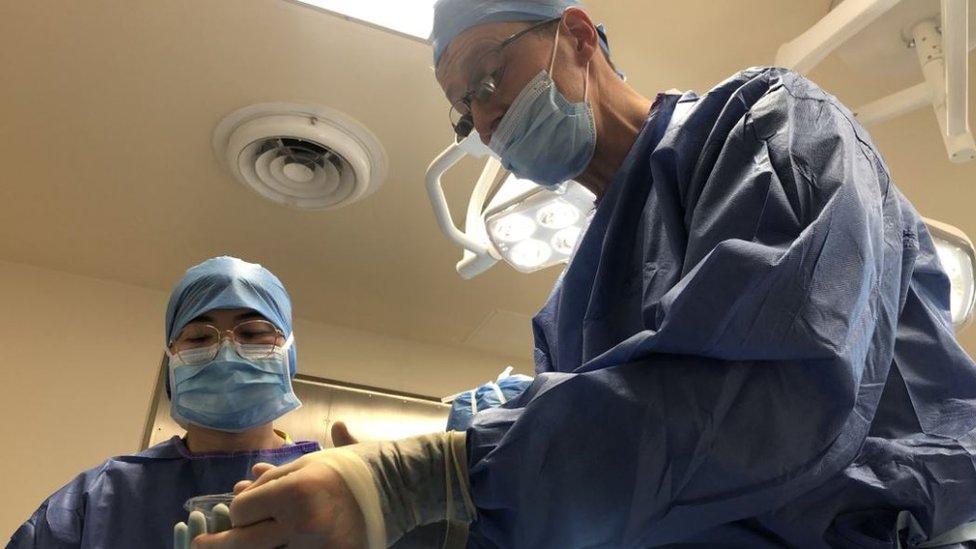
Mr Colbert is currently working locum shifts at a number of hospitals
The surgeon, who specialises in the head, neck, face and jaw, joined the RUH in 2015. He was at one stage lead consultant in the oral and maxillofacial (OMFS) department.
During his time at the RUH, Mr Colbert made several serious allegations about patient safety, and believes these claims led to him being investigated and dismissed.
There were also interpersonal clashes between members of staff, but Mr Colbert claims this was due to the fact he was not afraid to speak up.
'Duty bound'
Soon after he joined the RUH, he reported a dentist for unsafe use of anaesthetics and x-rays. The dentist was disciplined as a result.
Later, he reported another dentist at the hospital for treating private patients using NHS resources.
He also raised concerns about the safety of some operations.
Mr Colbert said: "I think as a responsible adult, I am duty bound to my patients to protect them, to stand by my professional principles and fundamental oath of 'first do no harm'."
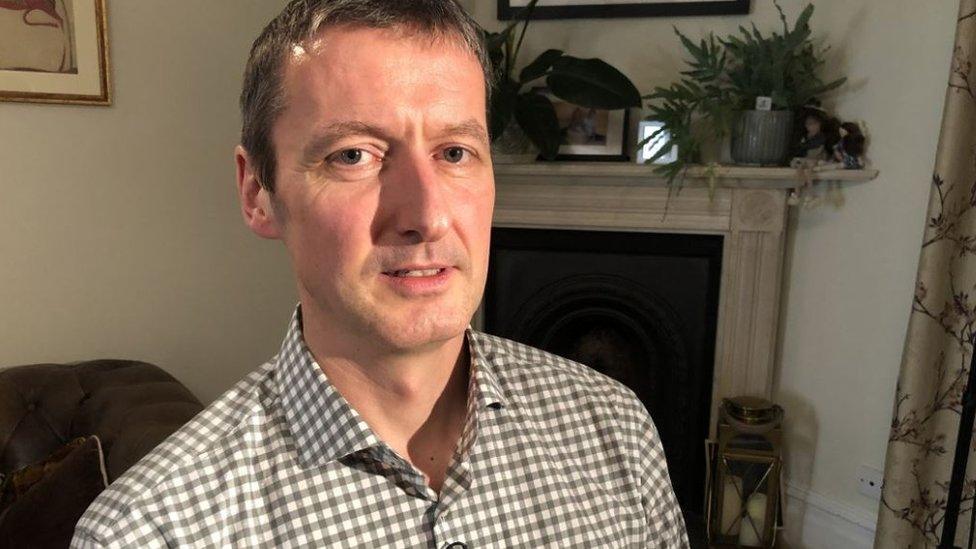
Mr Colbert says key whistleblowing concerns were not investigated
Most significantly, Mr Colbert complained in November 2020 that his department was "chasing targets" by treating routine tooth extractions rather than cancer cases. He thinks at least 300 patients had their treatment delayed.
Other doctors shared his concerns.
One colleague said in an email: "It appears medical expertise in terms of making decisions on urgency are outweighed by managerial ideas".
Mr Colbert said: "All these cancer cases were being mis-prioritised... to get through the backlog that was building up during the pandemic so that managers could hit their performance targets."
'Queue jumping'
At the same time, he also complained a staff member had a medical procedure in the department without a referral from their GP, in effect jumping the queue for treatment.
Mr Colbert said he raised these concerns in writing and was told by a senior manager in an email that his concerns deserved an "appropriately weighted independent investigation".
The BBC has seen no evidence any investigation specifically into the whistleblowing claims raised in November 2020 was ever carried out.
Shortly after Mr Colbert's disclosures, the RUH paid a former police detective to conduct a 'cultural review' into the OMFS department.
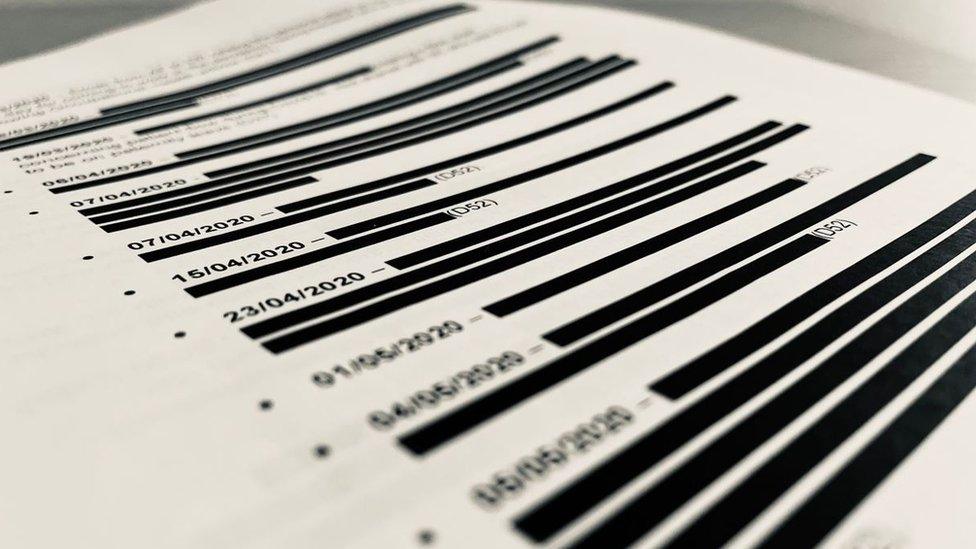
Only a partially redacted version of the cultural review has ever been published
Only a redacted version of the review has ever been published, but it appears to be mostly about Mr Colbert himself.
The review said it looked closely at Mr Colbert because many staff wanted to talk about him "in both positive and negative terms".
It concludes he should be investigated for bullying and inappropriate behaviour.
It is not possible to tell whether any of Mr Colbert's whistleblowing concerns are covered in the review, owing to the redactions. The RUH has not answered the BBC's questions about it.
Unredacted sections of the review do discuss patient safety, but only the effect that a culture of bullying had on it.
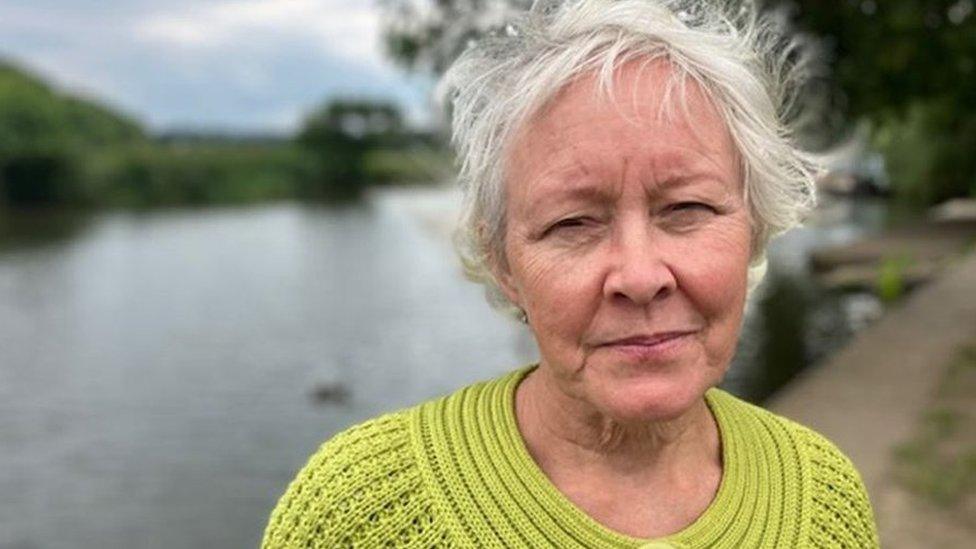
A former senior sister at the RUH, Lynn Howes, said she felt "under fire" when asked about Mr Colbert
Mr Colbert, as well as other staff spoken to at the RUH, have questioned whether the review was an appropriate response.
"All those concerns that I disclosed to him, they're not in his report. They're all cast aside," Mr Colbert said.
Some have also said the way they were questioned was unfair and focussed too much on Mr Colbert.
Senior sister Lynn Howes claims she was brought to tears during an hour and a half interview.
"It was difficult, I felt under fire," she said.
"I felt like I was in a courtroom and I was being tripped up. I was being asked the same question again and again."
'Fishing exercise'
A second doctor, who wants to remain anonymous, told the BBC: "I think the angle of the questioning was initially a fact-finding mission exploring the culture at the Trust but it became clear throughout the interview that it was looking specifically at any concerns I may have about Serryth.
"I was asked a number of times… whether anyone in the department had any concerns about Serryth. I think it was a fishing exercise."
In a statement, the review's author said: "The suggestions made by the BBC are demonstrably not true.
"As an experienced investigator I always operate with integrity, balance and proportionality. In this case I undertook a cultural review, not an investigation."
He added that he operated at all times under the close supervision and direction of the hospital's Executive Oversight Group.
Both the review's author and the RUH referred the BBC to a High Court decision which upheld the decision not to release the full, unredacted report.
It said the cultural review was "not targeted at Mr Colbert" and that it seems likely the report looked at a broader range of issues.
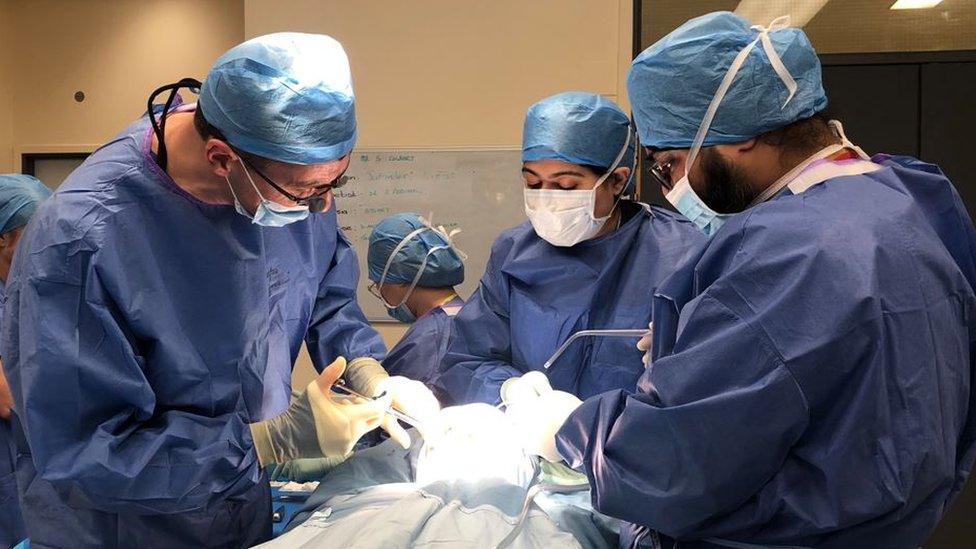
Mr Colbert (left) raised several concerns about patient safety at the RUH in Bath
As a result of the cultural review, a second report was commissioned by the trust in March 2021, believed to cost in excess of £40,000.
This investigation did not look at patient safety concerns, but instead specifically at Mr Colbert's conduct. It led directly to his dismissal for gross misconduct.
It included an allegation of "sustained bullying behaviour" against a senior colleague, despite adding that Mr Colbert is "an inspirational surgeon, teacher, mentor and colleague... recognised and valued by many with whom he works".
Mr Colbert strenuously denies bullying and said he is sometimes misunderstood because of his Irish heritage and physical size.
Robust disciplinary process
He is critical of both reports for not including enough testimony from the many people who support him.
The BBC has spoken to 25 colleagues who said they have never seen any signs of him bullying other staff.
In a statement, the RUH said concerns about bullying and intimidation were "raised by a number of staff and thoroughly investigated by an independent expert as part of a robust disciplinary process".
It said it supports anyone "to raise concerns so they can be investigated and dealt with fairly".
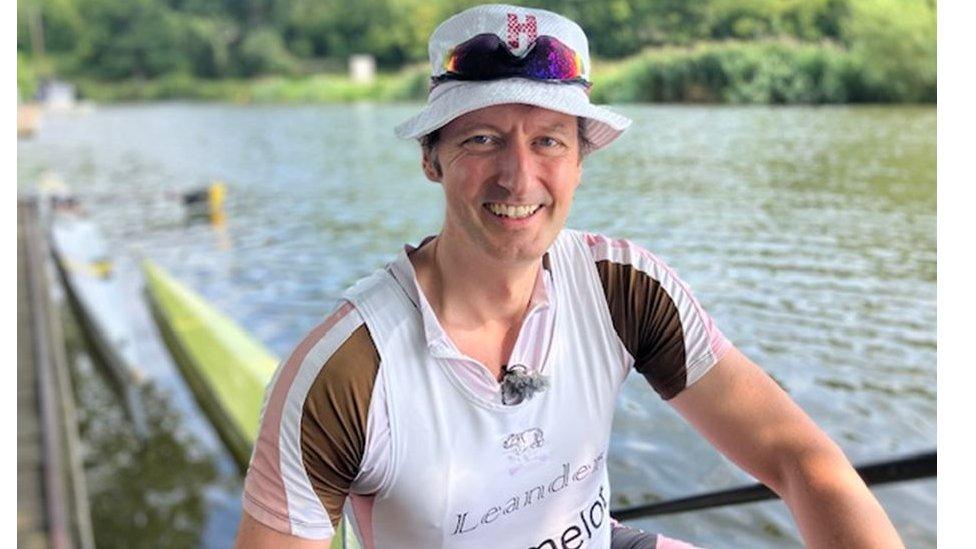
Serryth Colbert is also a former Commonwealth gold medal-winning rower
After his dismissal, the RUH offered to pay tens of thousands of pounds to Mr Colbert if he signed a Non Disclosure Agreement - a practice the former Health Secretary Matt Hancock said in 2019 should stop.
Mr Colbert refused to sign, saying he feels duty bound to speak out about his experience.
After the start of the BBC investigation, the RUH asked the Royal College of Surgeons to carry out an "invited review" into safety concerns in the department, which is due to be conducted in February.
Mr Colbert is now working as a locum at various hospitals around the UK.
He has recently had his registration to practice renewed with the General Medical Council (GMC).
His revalidation report is "critical of Bath and its processes". It adds: "Clinical concerns when raised need to be addressed fairly and promptly...This is a major breach in trust on Bath's side."
The RUH declined to comment specifically on these comments, but referred the BBC to its previous statement that the investigation was thorough, independent and robust.
The BBC investigation is due to be broadcast on BBC 2's Newsnight on Friday at 22:30 GMT.

Follow BBC West on Facebook, external, X, external and Instagram, external. Send your story ideas to: bristol@bbc.co.uk , external
Related topics
- Published4 February 2024
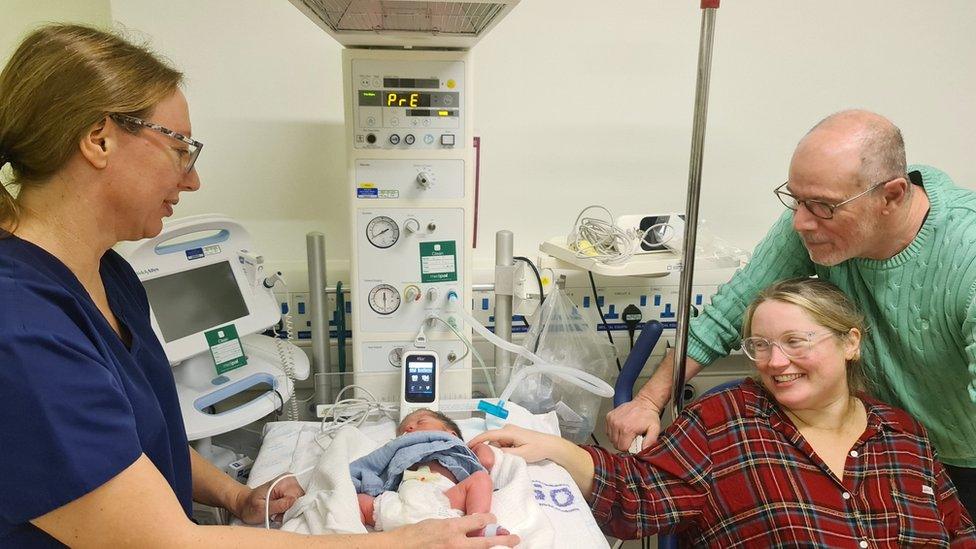
- Published18 October 2023
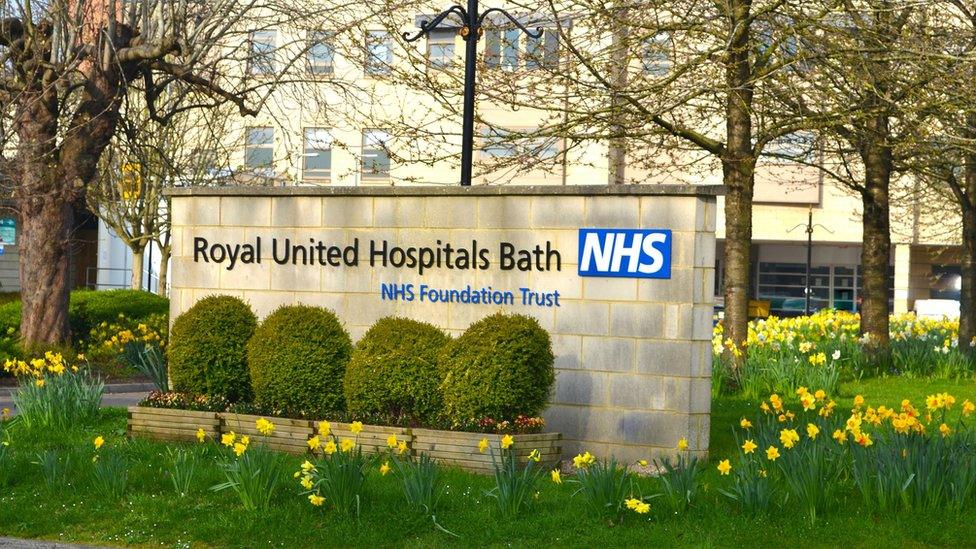
- Published17 May 2023

- Published17 November 2022
